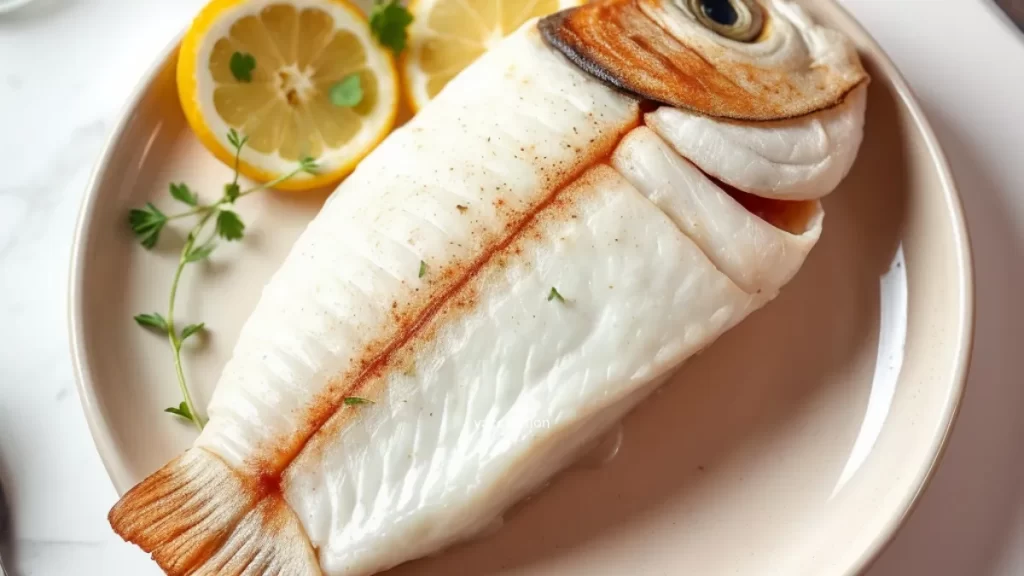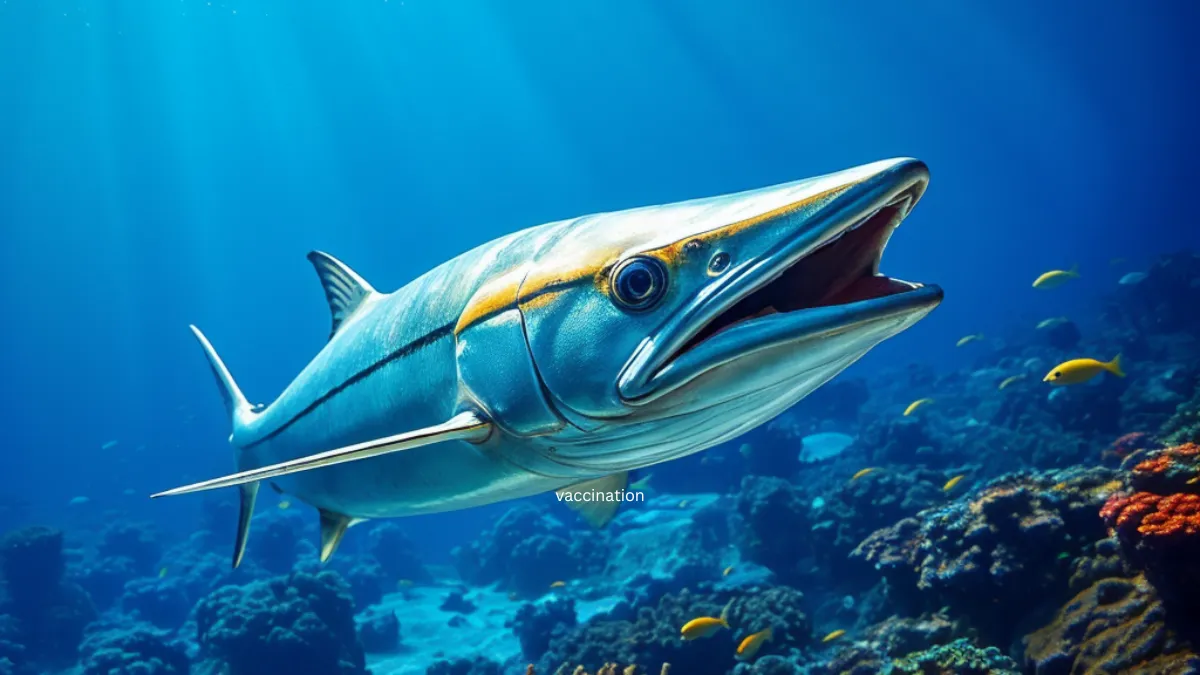Table of Contents
Barracuda is a fish known for its fierce look and sharp teeth, often spotted in tropical waters. But can you eat barracuda? This question pops up frequently, especially among seafood lovers who are curious about trying different types of fish. However, before diving into your next seafood dish, it’s essential to understand the risks and health concerns surrounding barracuda consumption. To help you make an informed decision, we will reveal the startling facts about eating barracuda in this post.
Can You Eat Barracuda? What Is Barracuda?
Barracudas are long, predatory fish found in tropical and subtropical oceans. They are known for their aggressive behavior and are often feared by divers and swimmers. The maximum length and weight of these fish are 6 feet and 100 pounds, respectively. But, more than their appearance, people are curious about their edibility. Can you eat barracuda safely, or are there hidden dangers?
Can You Eat Barracuda? Is Barracuda Safe to Eat?
You can eat barracuda, to put it briefly. However, eating barracuda comes with certain risks. Not all barracudas are safe for consumption; significantly larger ones are. This is due to a toxin called ciguatera, which some barracudas can carry. Eating fish contaminated with ciguatera can lead to serious health issues, as we will explore further in this article.
What Is Ciguatera Poisoning?
Ciguatera poisoning occurs when humans eat fish contaminated with ciguatoxins. These toxins are produced by tiny organisms found in coral reefs and can accumulate in large, predatory fish like barracuda. When you eat fish carrying these toxins, you risk becoming ill. Nausea, vomiting, and even neurological symptoms like tingling in the fingers and toes are signs of ciguatera toxicity. This is one of the main reasons why many people ask, “Can you eat barracuda?”
How to Avoid Ciguatera Poisoning
If you’re still curious about eating barracuda, there are ways to lower your risk. One of the most important factors is the size of the fish. More giant barracudas are more likely to contain ciguatoxins, while smaller ones are generally safer. Here are some tips to avoid ciguatera poisoning:
- Stick to smaller fish: Choose barracudas that are under 3.5 feet in length.
- Avoid tropical waters: Barracudas caught in tropical areas are more likely to be contaminated with ciguatoxins.
- Buy from reliable sources: Purchase your barracuda from reputable seafood markets that can ensure the fish is safe to eat.
How to Properly Cook Barracuda
Cooking barracuda is relatively simple, and it can be prepared in various ways. Grilling, frying, or baking are standard methods of cooking this fish. However, it’s crucial to know that cooking does not destroy ciguatoxins. If a fish contains ciguatoxins, no amount of heat will make it safe to eat. Always take precautions when selecting the fish to avoid consuming contaminated barracuda.
What Does Barracuda Taste Like?

Many people wonder what barracuda tastes like before deciding to try it. Can you eat barracuda and expect a delicious meal? The answer is yes! Barracuda has a firm, white flesh that is often compared to other popular fish like snapper or grouper. With its delicate, slightly sweet taste, it’s an excellent option for fans of white fish.
Nutritional Benefits of Eating Barracuda
If you’re considering adding barracuda to your diet, you’ll be happy to know that it’s packed with nutrients. Barracuda is high in protein, low in fat, and contains essential vitamins and minerals. Some benefits of eating barracuda include:
- High level of protein: Assists in the synthesis and maintenance of bodily tissues.
- Omega-3 fatty acids: Promotes heart health and supports brain function.
- Low calorie: Ideal for those looking to maintain or lose weight.
Risks vs. Benefits: Should You Eat Barracuda?
So, can you eat barracuda without worrying about the risks? While barracuda is rich in nutrients and can be a delicious meal, the potential for ciguatera poisoning cannot be ignored. The risks are higher with larger fish, but by making informed choices, you can minimize these dangers. Always ensure you’re purchasing fish from trustworthy sources and stick to smaller barracudas to reduce your risk of poisoning.
Also Read: What Candy Can You Eat with Braces? Reveal Guilt-Free Treats
Are There Alternatives to Barracuda?

If you’re hesitant about eating barracuda due to the risks, you may want to explore safer alternatives. There are many fish that offer similar flavors without the potential dangers. Consider trying:
- Snapper: A white, flaky fish that’s mild in flavor.
- Grouper: Similar in texture and taste to barracuda but with less risk.
- Tilapia: Another mild-flavored fish that’s safe and widely available.
The question, “Can you eat barracuda?” comes with a mixed answer. Yes, barracuda is edible, and many people enjoy its taste and nutritional benefits. However, the risks associated with ciguatera poisoning make it essential to choose your fish carefully. If you’re cautious and stick to smaller fish from reputable sources, you can safely enjoy barracuda. Always stay informed and prioritize your health when trying new seafood.
Now that you know the shocking truth about eating barracuda, you can make an informed decision before trying this unique fish. Stay safe, enjoy your meals, and keep exploring new and exciting seafood options!





